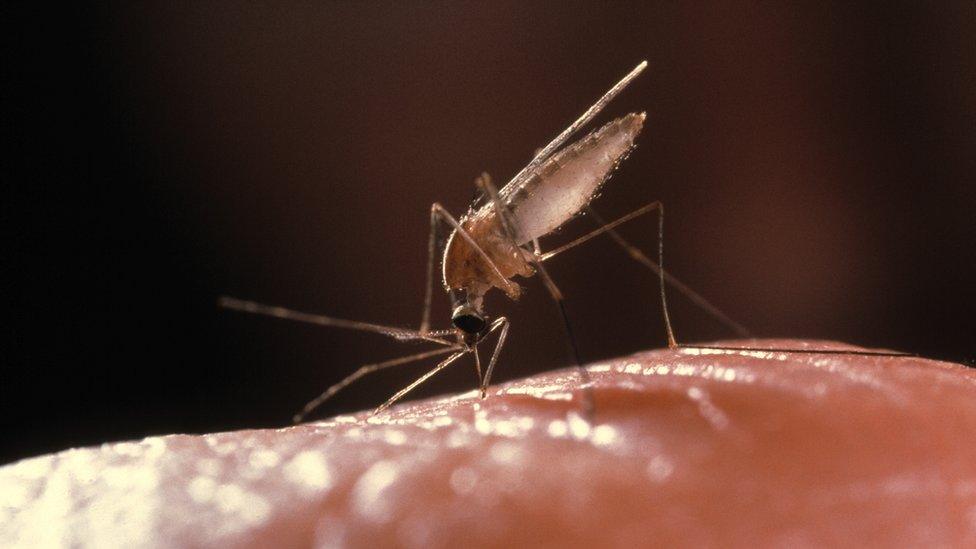Global health research money reaches 'record high'
- Published
- comments

Malaria remains one of the world's biggest killers
Funding to tackle 33 significant diseases has reached its highest level since figures were taken, says a survey which has tracked this for 11 years.
The G-Finder report, external found that money invested in research and development reached $3.5bn (£2.8bn) in 2017.
The total is a 7% increase on the previous year.
But the group which tracked the data warned that this area of global health was still too reliant on a handful of top funders.
The largest funder was the US government, which through its National Institutes of Health provided 39% of the total.
There were significant increases in contributions from the UK, the European Commission (EC), Germany and India.
The total investment was the largest seen since 2009.
A small Australian not-for-profit organisation called Policy Cures Research has been paid by the Gates Foundation to monitor how new health technologies are funded.
Its work looks at what drug companies, universities, governments and non-governmental organisations spend on detecting, treating or preventing big killer diseases such as HIV/AIDS, malaria and tuberculosis (TB).
Research and development grants helping lesser-known illnesses - such as diarrhoeal diseases, dengue and leprosy - are also included.
'Fascinating and scary'
The UK's funding increased by a huge 89% - representing an extra $87m (£67m) - in the latest year tracked.

Tuberculosis continues to pose a major threat
This was because of extra money from the Department for International Development, but almost half of the increase was because of a new funding stream from the Department of Health and Social Care (DHSC).
The DHSC money went to researchers looking at new drugs to treat malaria and TB, and a European partnership bringing together clinical trials which help developing countries.
Anna Doubell, Policy Cures Research's director of research, said: "The UK increase has been fantastic to see.
"Brexit raises a big question about what might change - we will only find out in time.
"And despite the record high in funding, no country reached the World Health Organization target for member states to spend 0.01% of their GDP on research into the health needs of developing countries."
Recent product approvals made possible by these funds include a new short course treatment for both stages of sleeping sickness, and a vaccine against rotavirus which is designed to stay stable in the heat.
The head of Policy Cures Research, Nick Chapman, said: "The research ties between the UK and the EC are really strong, with funding going both ways.
"I would hope that tidal volume doesn't come under threat. We have seen a real and strong commitment.
"It's a fascinating and scary time."
He added: "There are holes in our data regarding contributions from Russia and China.
"We are actively trying to improve our coverage of public funding from China, and we hope to make progress on that in the next couple of years.
"Russia took a leadership role with TB in the last couple of years, but as yet we don't have any funding data from them."